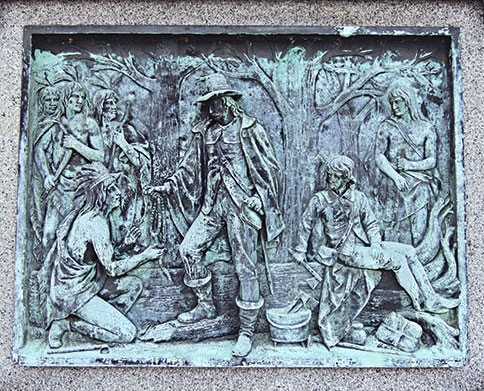The “Code of 1650” is the first codification of Connecticut laws. Compiled by Roger Ludlow, the Code begins with a bill of rights “…that no mans life shall be taken away, no mans honor or good name shall bee stained, no mans person shall be arrested, …unless it bee by the vertue or equity of some express Law of the Country….” The laws that follow this declaration reflect the legal concerns of Connecticut residents some 350 years ago. The Code contains laws that not only prohibit murder, forgery and theft, but also prohibit heresy, idleness and stubbornness.

Roger Ludlow was educated at Oxford and a member of the Inner Temple, an association of lawyers dedicated to the study and instruction of the law in London. Ludlow arrived in America in 1630 as an assistant to the Massachusetts Bay Company. In 1636, dissatisfied with the political issues developing in Massachusetts, Ludlow joined other settlers in Connecticut and helped establish the town of Windsor. Since he was the only lawyer in the colony, it is believed he drafted the “Fundamental Orders of Connecticut”, considered to be the first constitution in America.
Ludlow later founded the town of Fairfield and continued his work as a magistrate until politics again called him back to England. He left a legacy that became the foundation for other constitutions and laws that have endured to the present time. His “Code of 1650” may still be purchased through rare or used book dealers.
Several articles in the Connecticut Bar Journal and the Connecticut Law Review provide enlightening narratives of Ludlow’s career:
1 Conn. Bar J. 110, 13 Conn. Bar J. 52, 64 Conn. Bar J. 330, and 1 Conn. L. R. 386.
Doses of Connecticut Legal History
SOURCE: CT Judicial Branch
